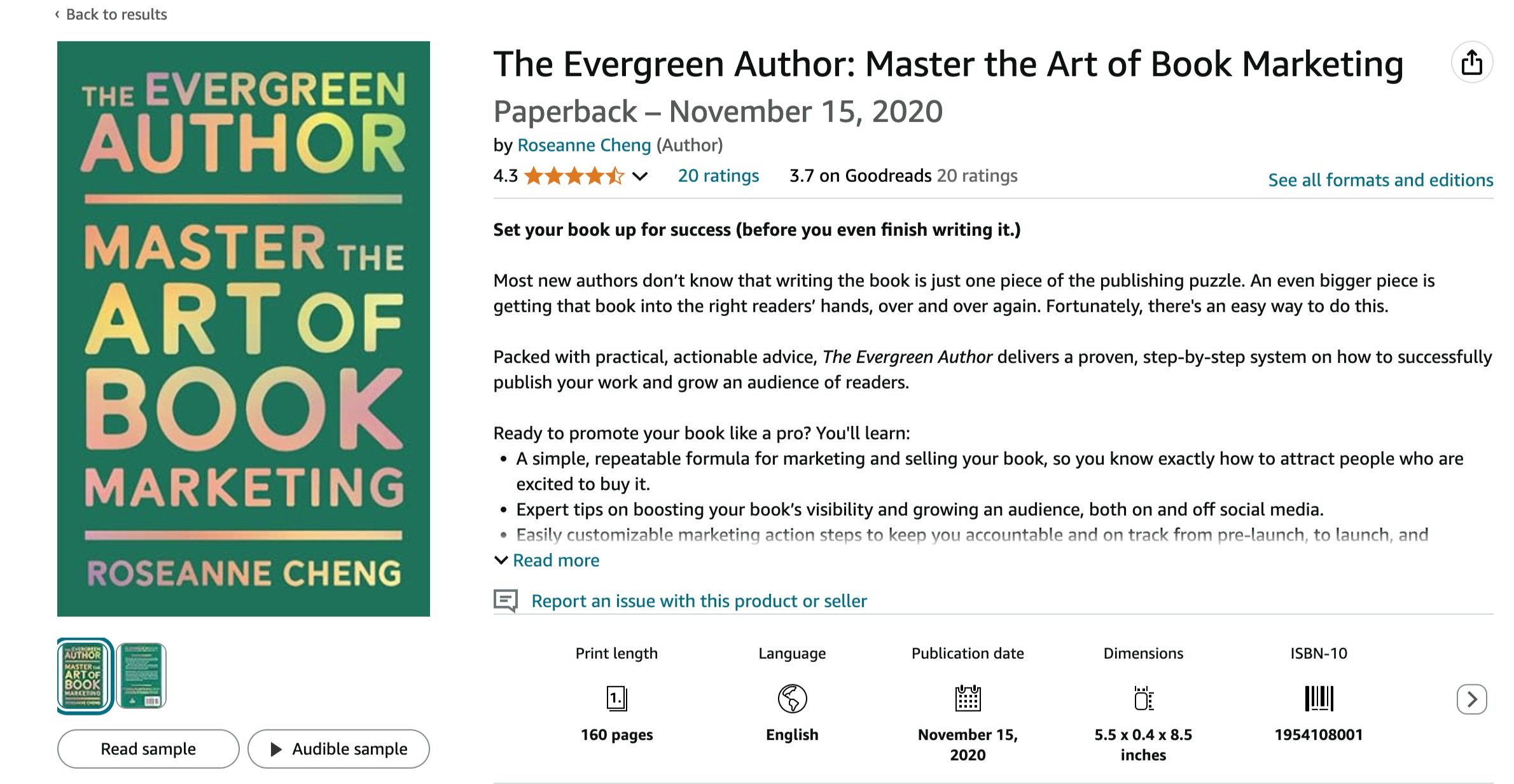Making Sense of Your Book’s Metadata
When my first book came out, I remember someone mentioning the word “metadata”. I remember thinking, “I’m a writer, not an engineer. Metadata isn’t something I should bother myself with.”
That was more than a decade ago. And wow, I’ve learned a lot since then!
Simply put, “metadata” is an umbrella term that includes all the pieces that describe your book. Your book title, description, keywords, and formatting specifics are all components of your book’s metadata.
How important is your metadata? VERY, VERY IMPORTANT!
We have good news and bad news about metadata. Let’s start with the good news:
Once you have compiled an accurate list of your book’s metadata, it’s likely that you won’t have to change any of it going forward.
Ingram Spark has an excellent post and downloadable checklist here, which is an invaluable resource to any first time author.
Much of the components are simple, some require a bit more thought, but for the most part, gathering your book’s metadata shouldn’t be a huge chore.
Are you ready for the bad news?
It is going to be up to you to make sure that your metadata is correctly displayed anywhere and everywhere your book is sold.
This is especially true on bookstore websites and major search engines like Amazon, Google, and your own personal web page. Doesn’t seem too hard, right?
Well…
The truth is that bookstores and online retailers like Amazon are positively saturated with titles, and that saturation is only going to continue to grow.
Readers might give your book a few seconds’ glance before moving on to another comparable title.
The completeness and accuracy of your book’s metadata could be the thing that makes or breaks the purchase.
So, metadata is not something to be taken lightly.
Here are 4 ways we see authors making the most of their book’s metadata to increase visibility and sales:
1) Write a 200-600 word description with a bolded opening line and paragraph breaks.
We know, we know, it’s impossible to describe your masterpiece in just 200 words!
But think about it– if someone clicks on your book, they should see within SECONDS that it is the right book to meet their needs.
Here’s an example of our description for The Evergreen Author book:
2) Use accurate and diverse keywords.
It is amazing how powerful keywords are – they are the tools readers are using to find books they are interested in.
In our experience, authors make the mistake of either being too broad or too narrow.
We suggest starting with 10 keywords, 5 broad and 5 focused.
Here’s an example of what we mean for The Evergreen Author book:
Broad keywords: Writing, Publishing, Marketing, Book Marketing
Specific keywords: Reader Engagement, Social Media Book Marketing, Content Marketing, Jane Friedman, Marketing Plan
3) Select the right genre.
We use the word genre very casually as readers, but when it comes to metadata getting your genre(s) and categories right is extremely important.
This post from our friends at Kindlepreneur is a wonderful resource for authors about how to identify the best categories for your book to get it to stand out from the crowd.
4) Include an up to date and relevant author bio.
With so many books available and so little time to engage potential readers, your author bio has the potential to make or break a sale.
We are shocked at how many authors don’t take the opportunity to make sure their book’s metadata includes an up to date biography that lists what makes their book worth reading!
Stuck? Here’s a template you can follow to get going:
(Name) is a (profession) who is known for (list three things relevant to your book and genre). She feels passionately that (insert something inspired your reason for writing your book). She has received accolades for (insert a list of awards you’ve won professionally or as an author). Based in (city), she hopes to (insert intentions for future writing projects).
Our best piece of advice to all authors about metadata is to take your time to get things right!
If you’re unsure, ask a professional. And yes, you can certainly use AI like Claude or ChatGPT to help you with any of the writing that is outside your wheelhouse.



